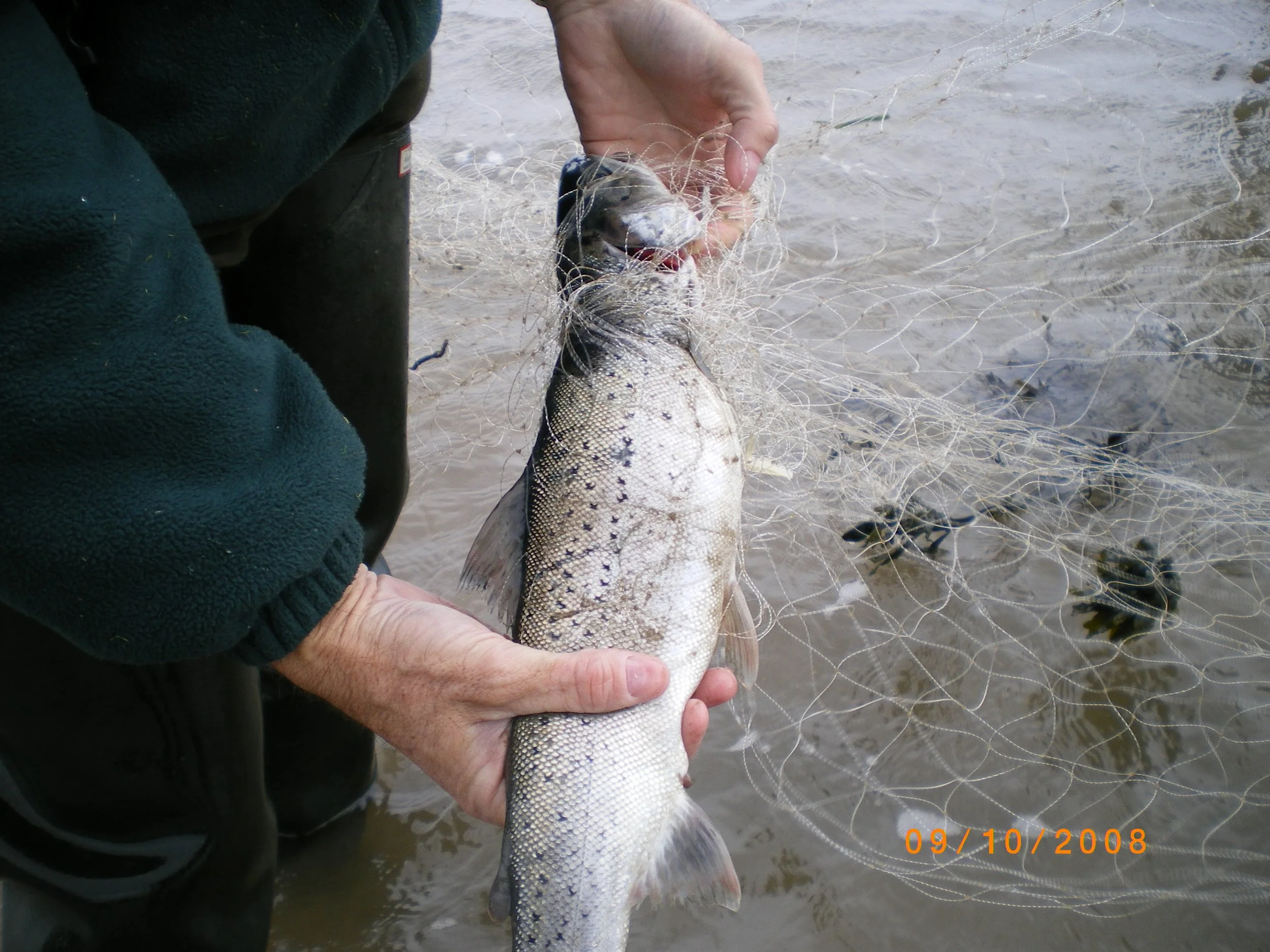Poaching Warning as Atlantic Salmon Numbers Reach Critical Levels
Police Scotland wildlife officers are encouraging the public to be aware of fish poaching and report any suspicious activity or concerns as new figures reveal that numbers of Atlantic salmon in particular have reached a critical level.
The recently published official Scottish Government catch statistics show that 35,693 Atlantic salmon and 12,636 sea trout were caught in 2021, which are the lowest catches since records began in 1952. They follow years of sustained declines in salmon numbers, affecting rivers across the country.
Image: Fisheries Management Scotland
Wildlife and Environmental Crime Officer, Detective Constable Ben Pacholek, said: “There is a perception that fish poaching is not a serious crime and that ‘taking one for the pot’ does no harm. However, fish poaching is a criminal offence and stocks are protected by law.
“As well as carrying out joint patrols with water bailiffs to deter fish poaching and other offences in and around rivers, lochs and the coastline, officers work closely with Fisheries Management Scotland and other partners, including the Partnership Against Wildlife Crime (PAW) Priority Delivery Group for Poaching in Scotland.
Brian Davidson, Director of Communications & Administration at Fisheries Management Scotland said “ It is clear that populations of Atlantic salmon are now at crisis point. The latest figures underline just how grave the situation has become. Fish poaching is a widespread and highly damaging wildlife crime activity. Our member fishery boards enforcement teams are working closely with Police Scotland to address fish poaching at a particularly challenging time for the species.”
Returning adult salmon have already successfully negotiated a range of challenges at sea, and any loss of these precious wild fish to illegal activity is tragic and reduces the chances of sustaining Scotland’s salmon populations into the future.”
DC Pacholek added: “The public has an important role in terms of assisting our work on this and I would urge anyone who sees anything suspicious or has information about fish poaching in general to contact us on 101, or make a call anonymously to the charity Crimestoppers on 0800 555 111.”
Image Credit: Forth DSFB
More information on wildlife crime and how to report it can be found on the Police Scotland website: https://www.scotland.police.uk/wildlifecrime
More information on fish poaching and fisheries enforcement can be found on the Fisheries Management Scotland website: https://fms.scot/fishing-and-the-law/
As an Alliance of six organisations, we will build on the existing work of our partners and maximise our impact by taking a coordinated approach and vital action in order to halt and reverse the decline of wild Atlantic salmon.
The goal of the Missing Salmon Alliance is to build an evidence-base to influence national and international decision-makers to regulate activities that adversely impact wild Atlantic salmon.
The Missing Salmon Alliance
The MSA is comprised of the following members:
Game & Wildlife Conservation Trust, Atlantic Salmon Trust, the Angling Trust with Fish Legal, The Rivers Trust and Fisheries Management Scotland.
https://www.missingsalmonalliance.org



